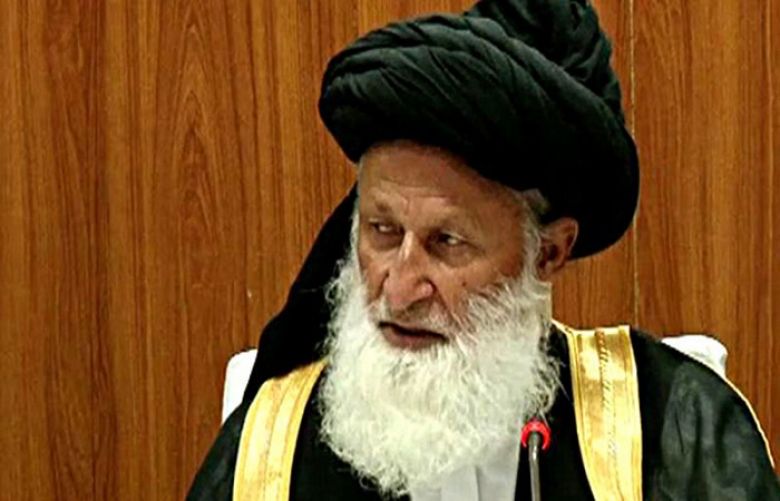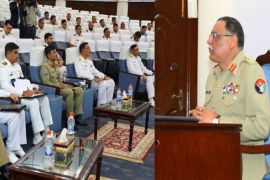Holding the Council of Islamic Ideology (CII) responsible for the rise in incidents of violence against women, members of the Senate Functional Committee on Human Rights on Tuesday recommended disbanding the body and urged the government to ban the use of Qisas and Diyat laws in honour-killing cases.
The CII, a constitutional body, advises the legislature whether or not a certain law is repugnant to Islam, in particular to the Quran and Sunnah.
The senate committee's recommendations come just a month after the CII in a proposed women's protection bill ruled that 'lightly beating' one's wife is permissible in Islam.
During a meeting, the committee observed that the 'anti-women' stance of the CII permitted violence against women and had contributed to an increase in crimes against the gender.
Committee Chairperson Senator Nasreen Jalil said that the CII's recommendations encouraged a negative attitude towards women and incited violence against them.
The body's recommendations only added to the miseries of women instead of providing any relief to them, Jalil said, adding that CII members appeared to be unaware of legislating in a modern age.
Jalil said the CII recommendation which allowed a husband to beat his wife made no sense. She added that "not accepting DNA tests as evidence in rape cases shows the backwardness of members of the council."
Committee member Senator Farhatullah Babar demanded disbanding of CII. "There is no reason for Council of Islamic Ideology to continue after completing its job in 1997," he said.
"A council should not continue its job with so many controversies," Babar said, recalling that the council had also declared the minimum age for a girl's wedding as 'un-Islamic'.
The senate committee also decided to write a letter to the Law Ministry to question the constitutional position of the council.
The committee in its recommendations urged the government to make murders in the name of 'honour' a non-compoundable offence and asked the government to ban the use of the Qisas and Diyat laws in honour-killing cases.
On the other hand, Senator Farhatullah Babar demanded the appointment of observers in order to monitor military court proceedings.
"We are unaware about what happens in the military courts," Babar said adding that members of the National Commission for Human Rights should be allowed to monitor military court proceedings.
He added that people have the right to know about the crimes of the accused given death sentences by military courts and a press release should also be issued by a military spokesperson.







